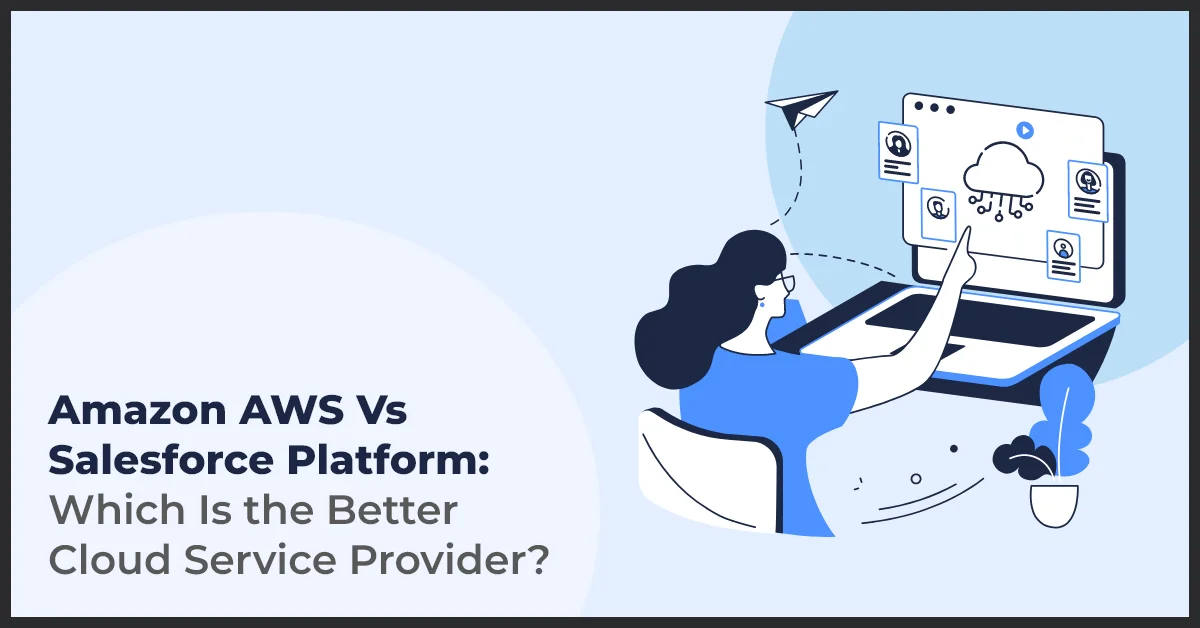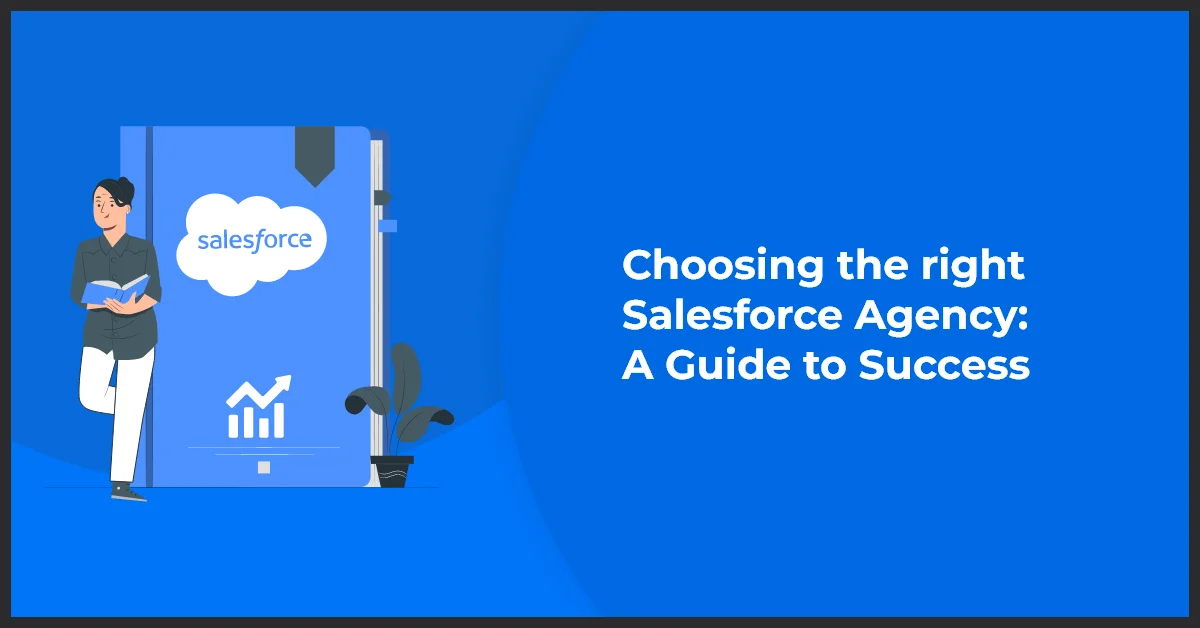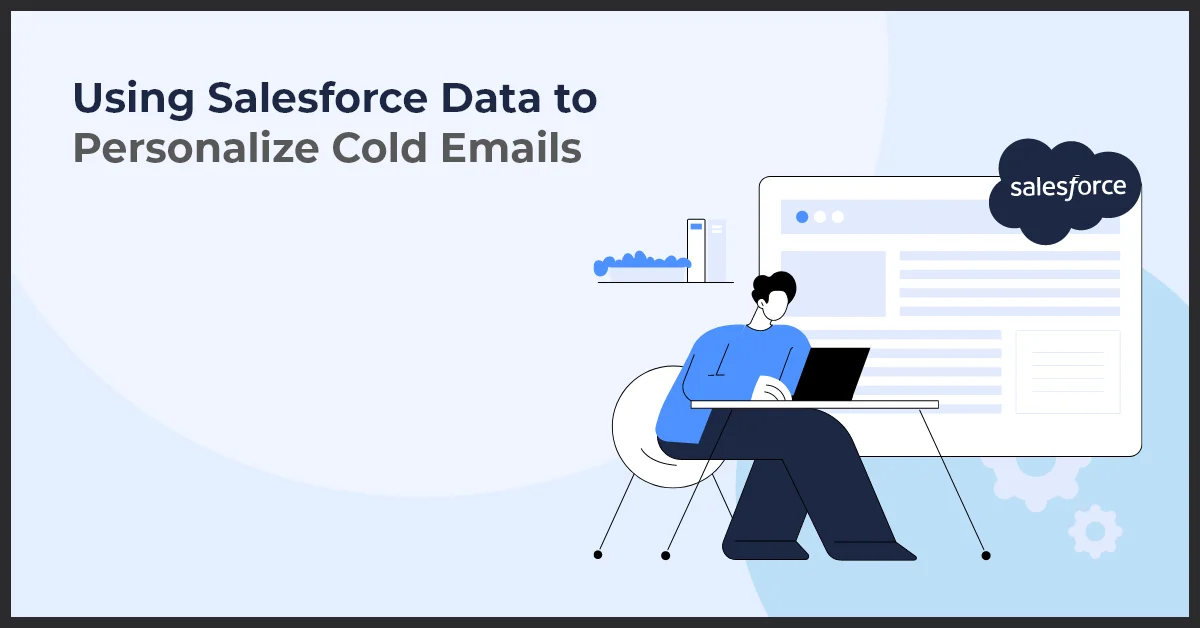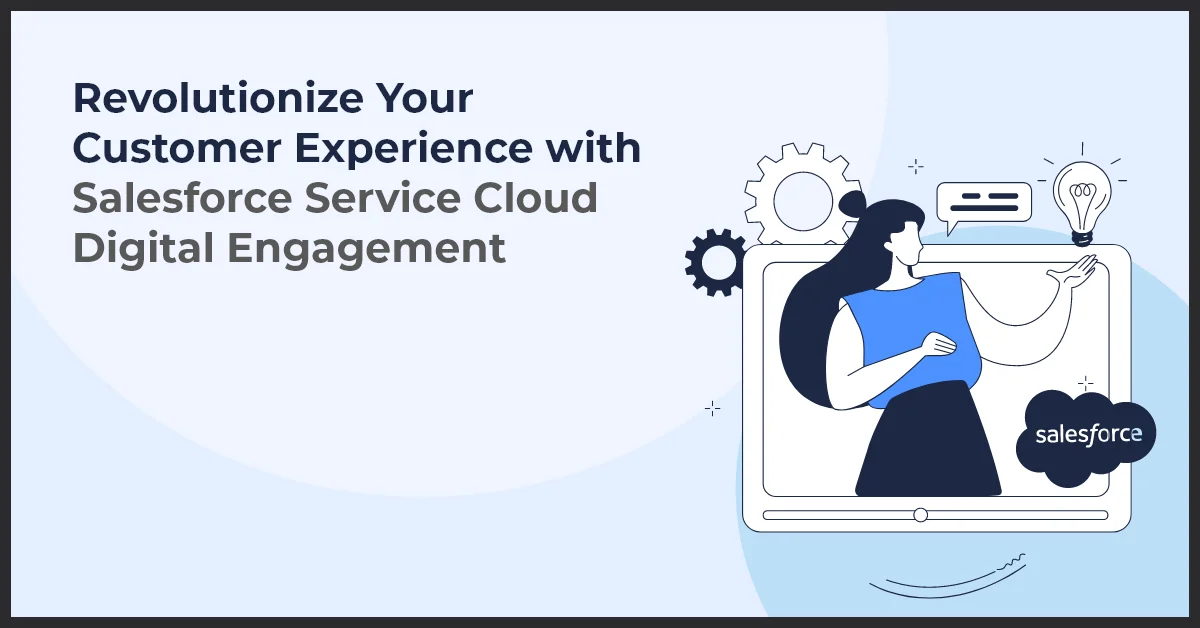Amazon AWS Vs Salesforce Platform: Which Is the Better Cloud Service Provider?

Published on: July 7, 2021
Updated on: August 09, 2024
1904 Views
- Salesforce
8 min read
In today's digital landscape, choosing the right cloud service provider is pivotal for businesses and organizations.
With a plethora of options and providers to choose from, it's easy to find yourself at a crossroads, uncertain of which path to take. However, Salesforce and AWS are two leading cloud titans in the sector, which are offering businesses the most comprehensive services.
Choosing which platform is ideal for your business becomes even more crucial if because you need cloud solutions to conduct your business operations efficiently.
In this blog, we'll delve into the specifics of these platforms, shedding light on their features, advantages, and limitations.
Salesforce Platform - Key Features, Use Cases, and the Cost
Salesforce is one of the leading SaaS applications that offers state-of-the-art client management services (CRM). It is one of the best enterprise platforms that you can use for your business. With a global clientele, Salesforce CRM can help you establish excellent client relations and foster customer engagement in a seamless manner.
Key Features
1. Standard API Links
Need access to a variety of legal API links? Then Salesforce is an ideal platform for you. Being one of the world’s largest web-based platforms, Salesforce offers proven links that can be connected with your framework without spending any additional hours.
2. Flexibility
Salesforce is popular for being highly customizable and adaptable to different frameworks. You can easily modify the objects according to your business with ease. In addition to that, you will not have to worry about being bound to a specific set of layouts.
3. Management
Need a platform that’s flexible enough and easy to manage? It doesn’t get any better than Salesforce. Even if you are a small or medium enterprise, you will need a tool that can make changes on the administrative side and Salesforce will suit your needs perfectly.
4. Multiple Applications
Another great advantage of using the Salesforce ecosystem is that you have access to several applications via app exchange.
However, much like every other platform, Salesforce does have its fair share of cons. Here is a quick look at them.
- Salesforce is comparatively costlier and small organizations might find it expensive to deploy
- You need to pay for every add-on to get the most out of this platform
- The overall CRM configuration is complex and requires expertise to set up
- It can prove to be time-consuming to have it up and running perfectly
- There is a lot to learn when getting started with Salesforce
- Cluttered interfaces can make navigation complicated
Ideal Use Cases
- Sales and Marketing: Salesforce is the go-to solution for organizations looking to streamline their sales and marketing efforts.
- Customer Service: If you're focused on delivering exceptional customer service, Salesforce's CRM functionalities are unmatched.
- App Development: Salesforce's low-code development capabilities make it ideal for organizations looking to build custom applications without extensive coding.
The Cost
As we discussed above, Salesforce can be expensive to get hold of. If you are a first-time user, you can expect to be charged around $5000 for the first year. However, if you are looking for a wide range of features and functionalities, you will get fair pricing based on a per-user and per-month basis.
This brings us to the conclusion of the first part of the Amazon AWS vs Salesforce platform discussion. Now that you have a clear understanding of Salesforce, it is time to dive into the details of the Amazon AWS platform.
Amazon AWS - Key Features, Use Cases, and the Cost
Amazon Web Services (AWS) is the cloud computing arm of Amazon and is offered as an infrastructure as a service (IaaS) and platform as a service (PaaS) solution as compared to Salesforce’s SaaS model.
AWS has gained a lot of popularity ever since being launched under the Amazon business umbrella. Today, it is one of the most prominent cloud service prods that delivers over 100 services. It also includes the framework, on-demand stockpiling, investigation, information, and application development.
Key Features
1. Global Presence
AWS has a strong global presence with footprints in over 190 countries and counting. Millions of users including many small and medium businesses are using AWS and are satisfied with the results. Moreover, AWS is also serving the public sector in many countries making it a trusted name.
2. User-Friendly
It is very easy to migrate from on-location stockpiling to the cloud with AWS. You also get extensive training and educational videos. Apart from that, users can visit the AWS website for more how-to videos and get started with AWS quickly. In case you need a firm to take care of AWS development, you can find a list of trusted agencies in their partner network.
3. Secure
AWS security is considered to be one of the best in the field. Every business should protect their data from hacks and AWS security features are as good as they come both virtually and physically.
4. Competitive
Professionals state that AWS pricing is competitive and delivers innovative solutions to its clients. Though it receives tough competition from names like Microsoft and Google, AWS continues to be an innovative cloud service provider.
Ideal Use Cases
- Large-Scale Applications: AWS is a top choice for organizations running large-scale applications or complex, resource-intensive workloads.
- Custom Infrastructure: Businesses that require fine-grained control over their infrastructure often prefer AWS.
- Scalable Web Hosting: If your website experiences varying traffic, AWS's scalability can save you money during lulls and handle traffic spikes seamlessly.
The Cost
AWS pricing varies from person to person. Each framework comes at a different cost and many users report spending a few hundred dollars every month. In most states, the pricing is competitive and comfortable for the users.
Comparison of Amazon AWS and Salesforce Platform
| Feature | Amazon AWS | Salesforce Platform |
| Scalability | Highly scalable, suitable for businesses of all sizes | Scalable, tailored to CRM and app development |
| Global Reach | Data centers in multiple global regions | Global reach with data centers in various regions |
| Reliability | High uptime and reliability | CRM-focused with a strong ecosystem |
| CRM Expertise | Limited CRM functionality | CRM expertise with robust tools |
| Low-Code Development | Not a primary focus | Strong emphasis on low-code development |
| Application Hosting | Excellent for hosting websites and web apps | Ideal for CRM, sales automation, and marketing |
| Data Storage Solutions | Various storage options (e.g., Amazon S3, EBS) | CRM data storage capabilities |
| Machine Learning & AI | Comprehensive ML and AI services (e.g., SageMaker) | Limited AI capabilities |
| Custom App Development | Focused on infrastructure | Low-code platform for app development |
| Workflow Automation | Not a primary feature | Strong workflow automation |
Amazon AWS Vs Salesforce Platform - Are There Any Similarities?
No matter how different two cloud solutions might appear, they will always have a few similarities. It is no different for the Amazon AWS vs Salesforce platform case. These include:
- You can get valuable certifications from both AWS and Salesforce
- Both solutions champion the deployment of the best apps
- Both of them are global leaders in cloud computing solutions - AWS is known for cloud infrastructure while Salesforce is popular for customer data management
- They both can handle cloud-based operations
How to Choose the Right Platform for Your Business
Choosing the right platform for your business is a critical decision that can significantly impact your operations, growth, and success. Here are a few factors that you can consider and make an informed choice.
- Business Goals and Objectives
Consider your specific goals—whether it's improving customer relationships, streamlining sales, or enhancing operational efficiency. If CRM and sales automation are primary, the Salesforce Platform is ideal; for versatile objectives, Amazon AWS's infrastructure services provide flexibility.
- Scalability Needs
AWS scales effectively for varying business sizes and growth scenarios, while the Salesforce Platform primarily suits CRM and app development scalability.
- Industry-Specific Requirements
Both platforms offer security and compliance features, but Salesforce excels in industry-specific CRM solutions, while AWS provides broad infrastructure support.
- Budget Considerations
AWS's pay-as-you-go model offers cost flexibility, while Salesforce Platform's subscription-based pricing offers budget predictability.
- Integration and Ecosystem
Review existing tech stack and integration needs. Both platforms offer extensive ecosystems and integrations; Salesforce has pre-built solutions, while AWS has a rich marketplace.
- Support and Training
AWS offers comprehensive resources and a user community, while Salesforce provides training and certifications. Assess team expertise and readiness for platform adoption.
Wrapping Up
The "better" cloud service provider depends on the unique requirements of your organization. Carefully evaluate your needs, consider the strengths and features of each provider, and potentially explore how a combination of both could take your business to new heights. The cloud is all about flexibility, and your choice should reflect that same principle.
Wish to Amplify Your Business Operations Using the Right Cloud Platform? Let’s Talk! If you're ready to explore Amazon AWS or Salesforce Platform further or need additional guidance tailored to your business, just drop us a line at info@growthnatives.com, and we’ll take it from there.



